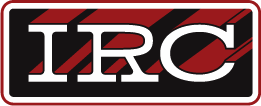Apartment Sector Still on the Up
August 31, 2011
Apartment market conditions continue to improve across the board, according to the National Multi Housing Council’s (NMHC) latest Quarterly Survey of Apartment Market Conditions.
“Demand for apartment residences continues to rise, even as the overall economy remains hampered by the aftermath of the housing bubble,” said NMHC Chief Economist Mark Obrinsky. “For the fifth time in the last six quarters, all four survey measures of market health showed improvement over the prior three months. Markets are tighter, debt and equity capital are more available and sales volume is rising.”
“In fact,” Obrinsky continued, “all four indexes were at or above 70. This is only the fourth time since the survey began in 1999 that has happened, and three have been since July 2010, a sign of the breadth of this recovery.” (Note: A reading above 50 indicates improving conditions.)
Key survey findings include:
The Market Tightness Index, which examines vacancies and rents, came in at 82, down from a record 90. This is the sixth straight quarter the index has topped 50. Though down slightly from last quarter’s record level, two-thirds of respondents noted tighter markets (lower vacancies and/or higher rents) compared with three months earlier.
The availability of debt financing for acquisitions continues to broaden, with the Debt Financing Index rising to 74 from 69. More than half of respondents (53 percent) indicated borrowing conditions had improved compared with three months ago, while another 40 percent said conditions were unchanged. Although the Debt Financing Index has been more volatile than the other indexes over the last several years, this marks the fourth quarter out of the last five in which this index has indicated better borrowing conditions. Notably, yields on Treasury securities peaked at about 3.725 percent in February but have fallen by more than 100 basis points since then.
The Sales Volume Index increased further to 70 from 65. This was the eighth consecutive quarter the index has been above 50, indicating improving sales volume. Forty-six percent of respondents said sales volume was higher this quarter; another 46 percent saw sales volumes unchanged.
The Equity Financing Index came in at 70, a slight drop from last quarter’s record-setting 76. Forty-two percent indicated that equity financing conditions were better than three months earlier. A mere one percent regarded equity as less available. This is the eighth quarter in a row where more respondents said equity financing conditions were improving.
Click here for the full survey results.

